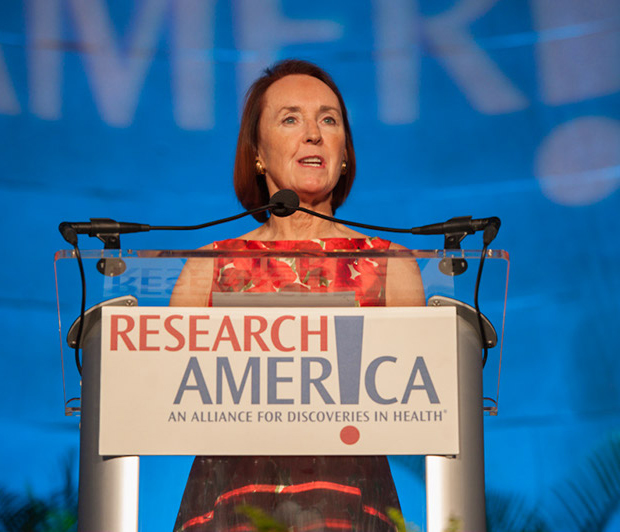10,000 Lives Each Week

COVID-19 continues to take lives: approximately 10,000 a week globally, including ~2,400 in the U.S. We are not done with this pandemic or prepared for the next one.
Yesterday, President Biden released the latest National Security Strategy, which puts a fine point on the pandemic preparedness imperative:
“COVID-19 has killed nearly 6.5 million people around the world, including more than 1 million Americans, but the next pandemic could be much worse — as contagious but more lethal. We have a narrow window of opportunity to take steps nationally and internationally to prepare for the next pandemic and to strengthen our biodefense.”
So, where are we on the long road out of the current pandemic, and what pandemic preparedness actions are needed to boost U.S. and global security? A Harvard Gazette article takes a close look at the COVID-19 question, and this review of the statistics on Long COVID from The Guardian is a grim reminder that current case numbers don’t tell the whole story.
On October 19, 1:20 – 2:20 p.m. ET, Georgetown University’s O’Neill Institute for National and Global Health & Law will host an in-person and virtual conversation with White House COVID-19 Response Coordinator Ashish Jha, M.D., and Foundation for the National Institutes of Health CEO Julie Gerberding, M.D., (former CDC Director) for a look at “The Next Frontiers of COVID-19.” Register now.
One obvious step in the path to pandemic preparedness is congressional action on the bipartisan PREVENT Pandemics Act (S.3799). Check out this section-by-section summary of the bill, and use this editable tweet to push for congressional action!
On (or About) The Hill: The midterm elections are just 25 days away. If candidates champion medical progress when they seek votes, they are more likely to do the same if elected/re-elected!
Take a moment now to urge candidates to champion research; you are a constituent and your vote matters. Just send this fact sheet to candidates via social media or drop a hard copy by their local offices – these days, an in-person touch is innovative! Not sure how to connect? Check out these quick tips for contacting your candidates. Let us know of any feedback you receive.
Insight, Inspiration, Communication:
- Mark your Calendar: What Do the Midterms Mean for Research? Join Research!America for an in-person (and live-streamed) post-election briefing on Tuesday, November 15, from 11 a.m. – 12:45 p.m. ET, at AAAS headquarters in Washington, DC. We’ll look at the implications of the election outcomes on the make-up of the 118th Congress and how that might affect U.S. research and development. Save the date; more details to come.
- Bridging Ideological Divides: As part of the run-up to the elections, the Public Health Communications Collaborative is hosting a panel discussion about how to frame public health issues to build trust and communicate across the political spectrum. Register now for the session, which will be held Tuesday, October 18, at 1 p.m. ET.
- “Your Science Can Affect Policy”: The American Psychological Association is hosting a webinar at 1 p.m. ET on October 25 to help scientists understand how their “research and expertise can shape policy, garner funding for essential programs, and improve human lives.” The content and panel are focused on psychological sciences, but will be broadly applicable. Register now for this latest in the APA’s series of “Essential Science Conversations.”
Honoring Clinical Research: Nominations are open for the Clinical Research Forum’s annual Top 10 Clinical Research Achievement Awards, which honor major advances in clinical research “resulting from the nation’s investment in research to benefit the health and welfare of its citizens.” The submission deadline is November 21.
ICYMI: This afternoon, we heard from three early career scientists – Sophia Kaska, PhD; Victoria Schneider, PhD; and Jasmine George, PhD – all Research!America staff members. They candidly shared their experience and insights on issues including: mentorship in academia, the changing landscape of civic engagement, and the role of diversity, equity, inclusion, and accessibility in shaping their careers. The audience was highly engaged and asked great questions – watch the recording!
Up Next: Inflation Reduction Act (IRA) Demystified: The recently enacted IRA includes provisions intended to reduce Medicare prescription drug spending. These provisions are also expected to affect the R&D investment landscape. So what exactly does the IRA do, and what happens next? We’ve asked Rob Smith of Capital Alpha Partners to answer those questions, and yours, during our next alliance discussion. Register now to join us on Wednesday, October 19, from 2:30 to 3:15 p.m. ET.
Stay well, stay safe, and stay connected.




